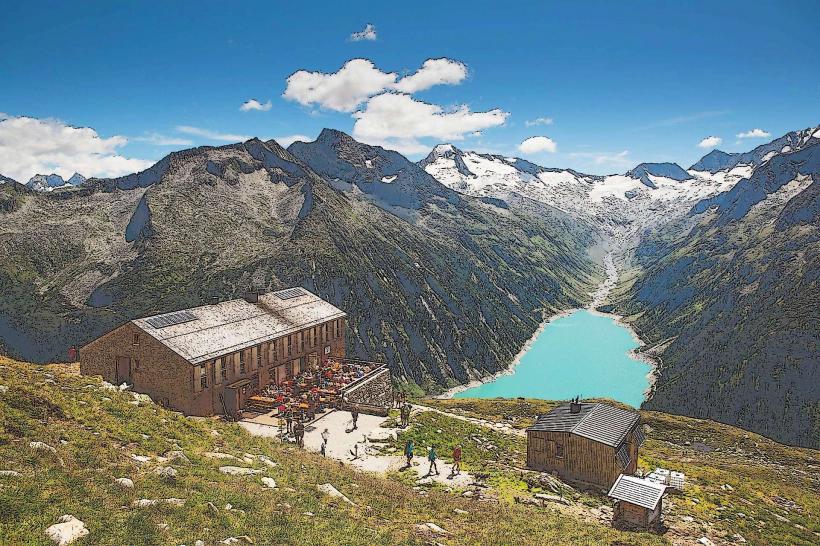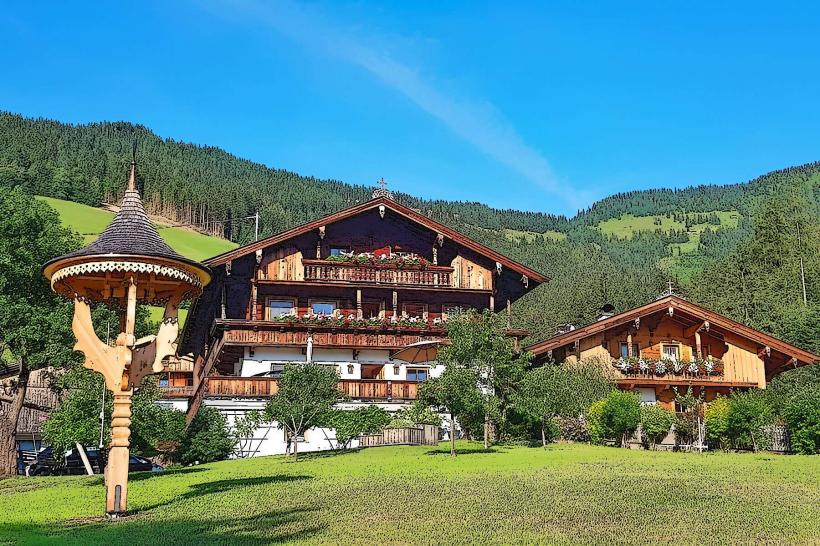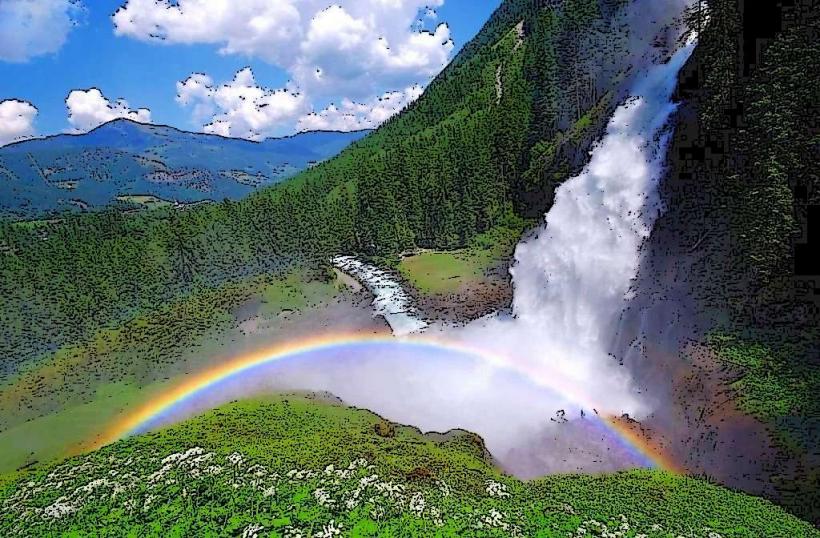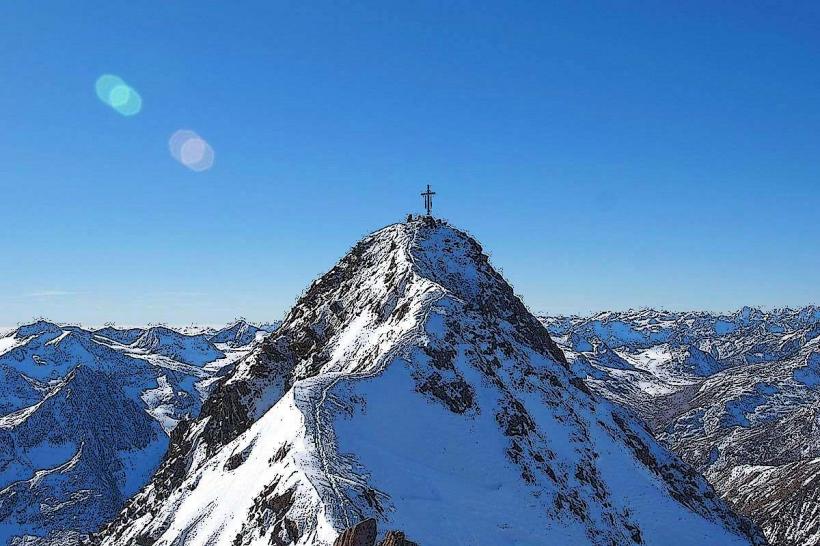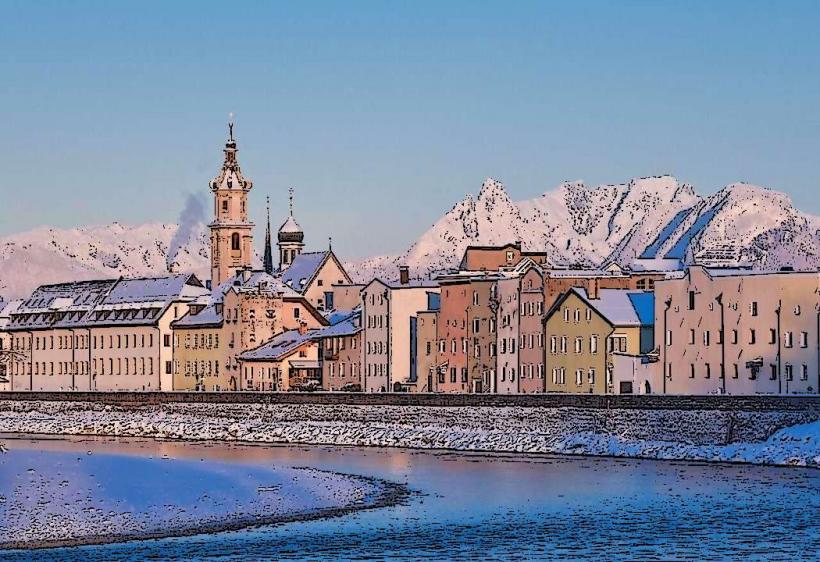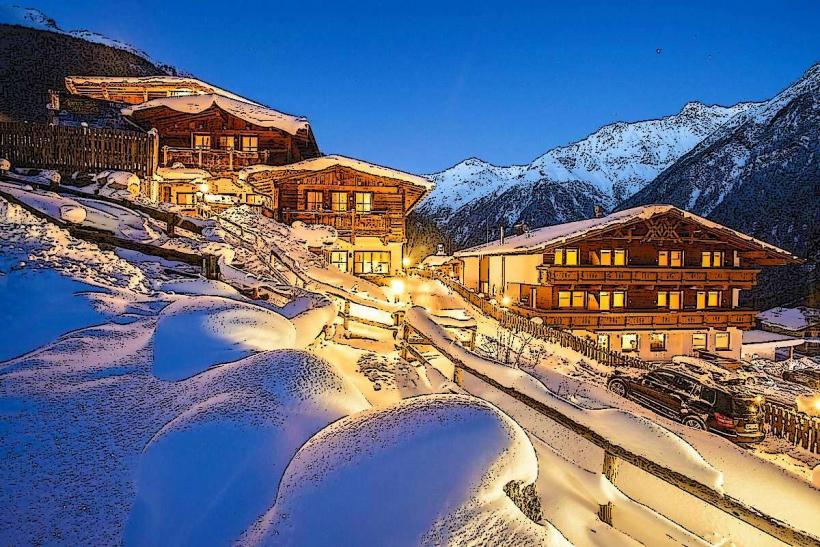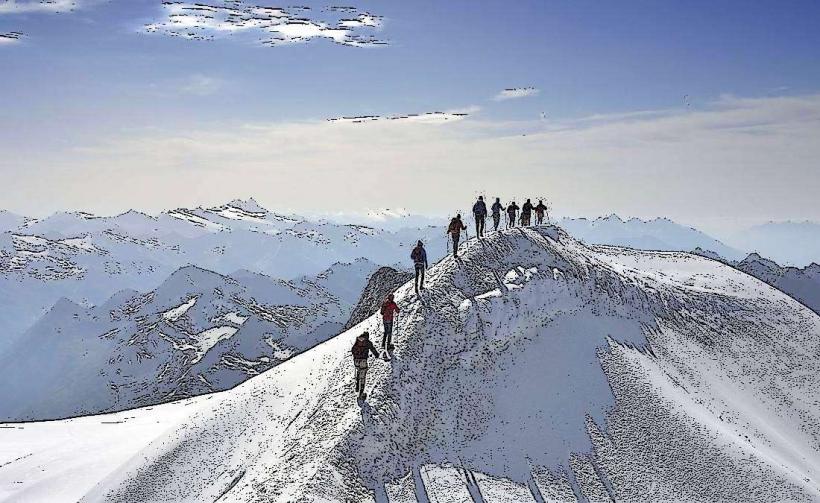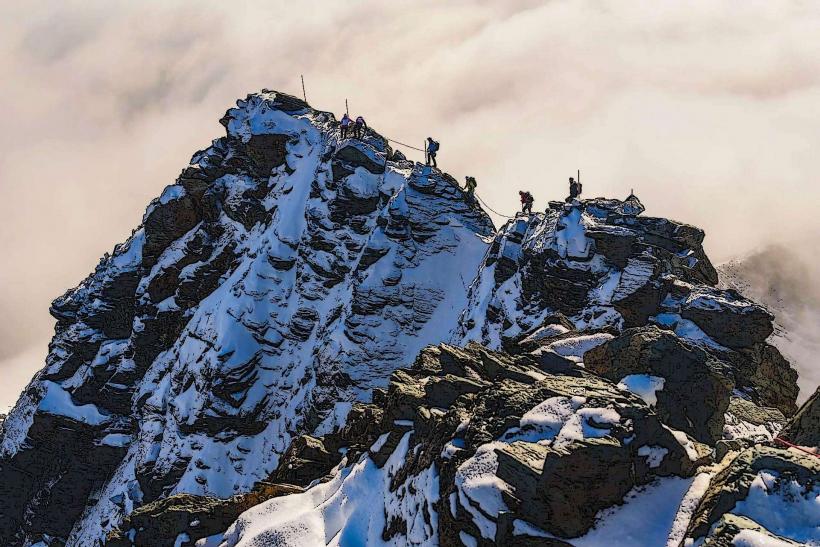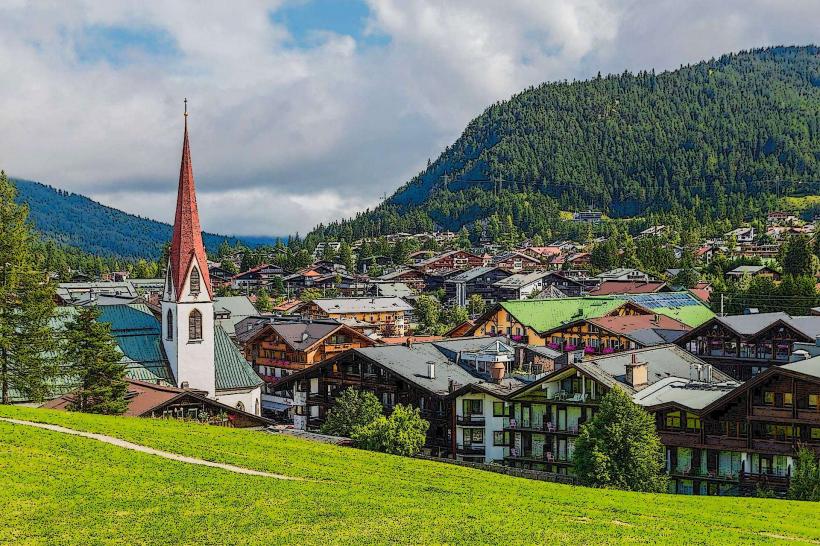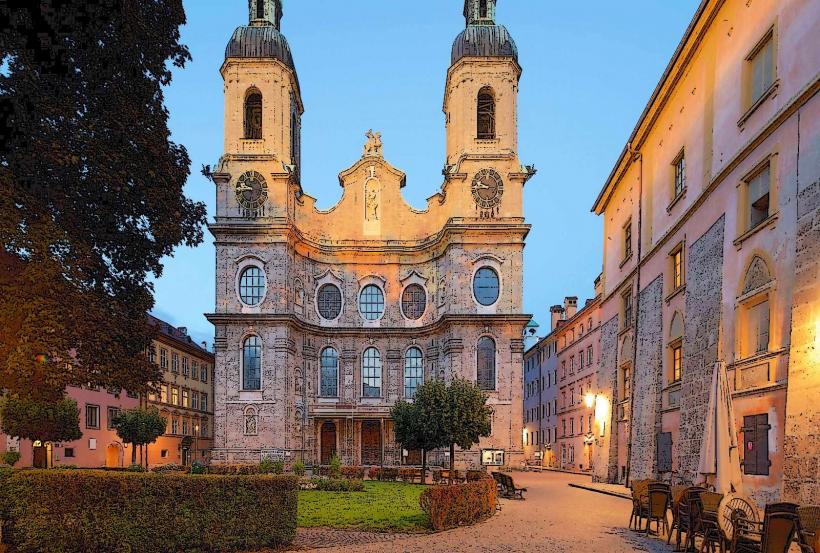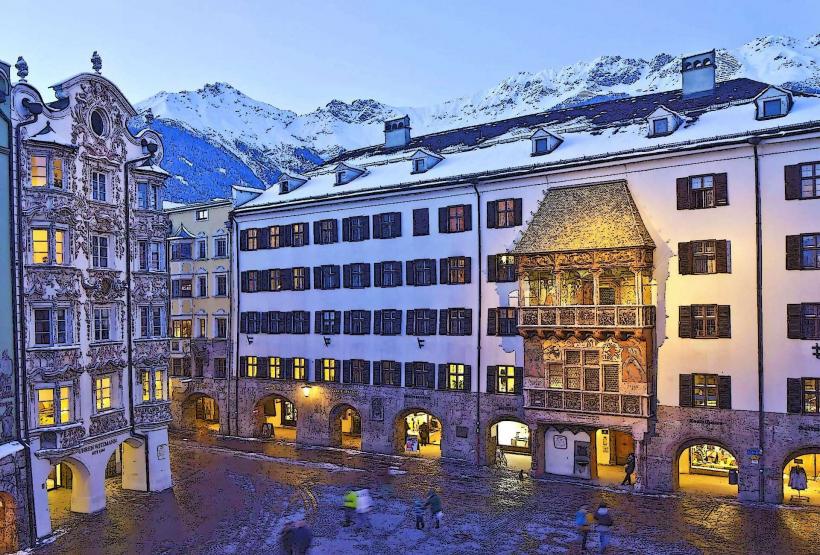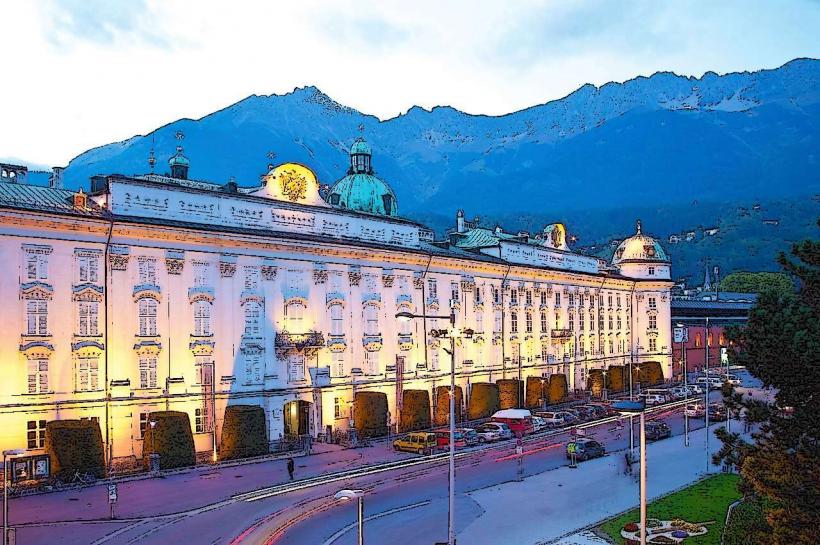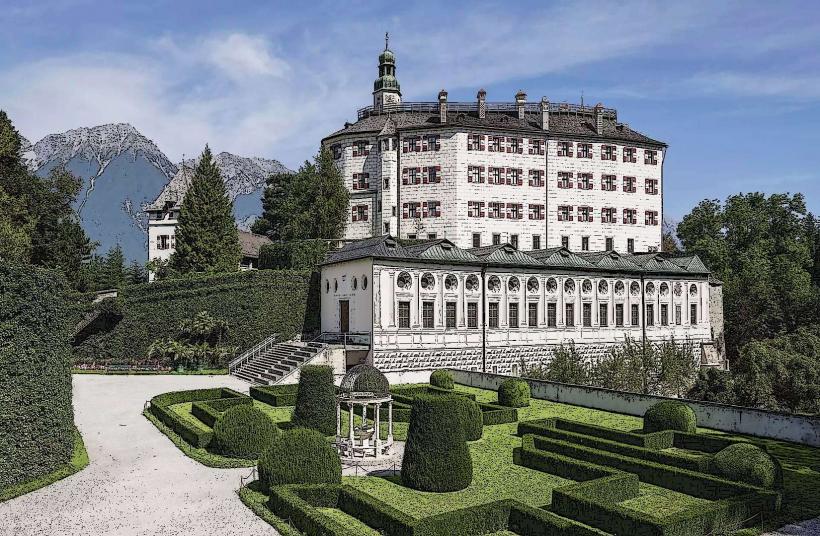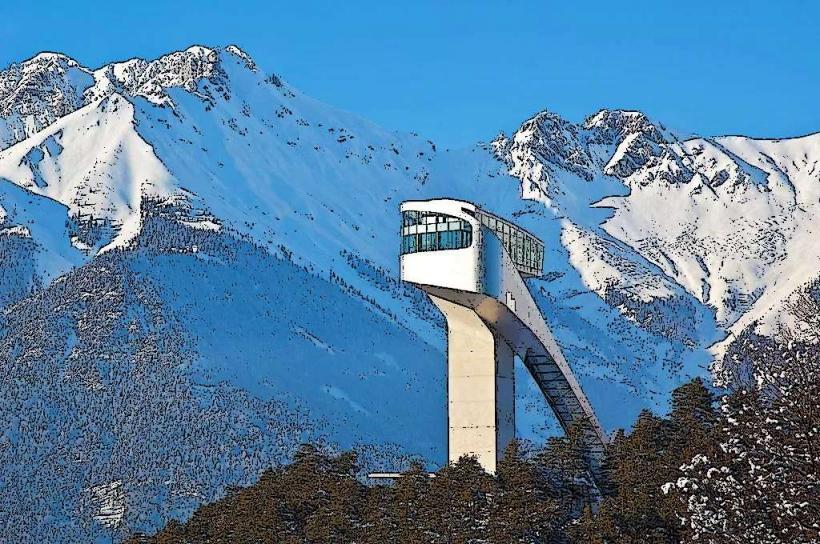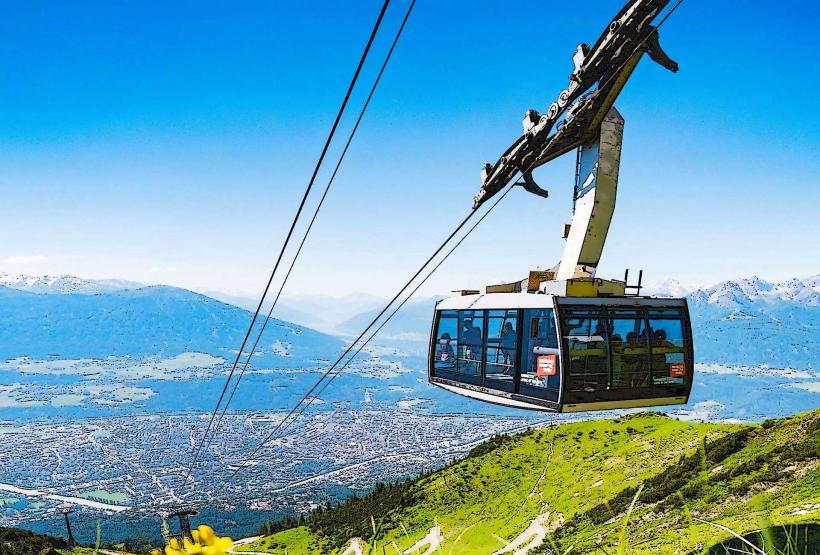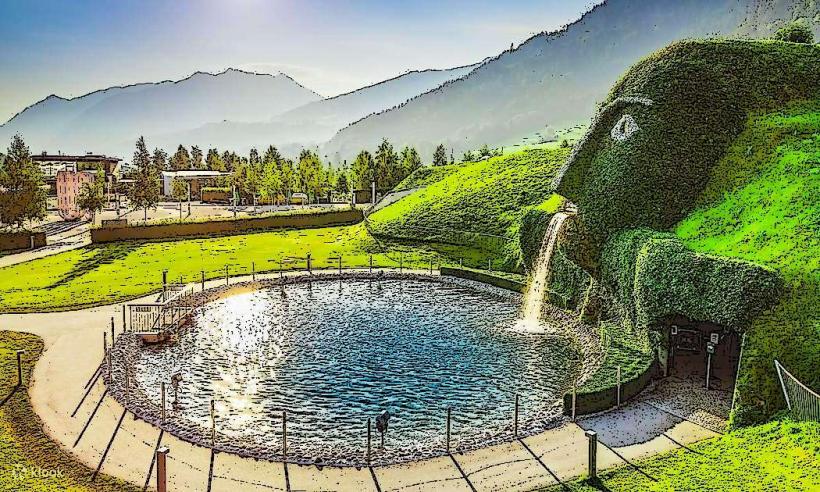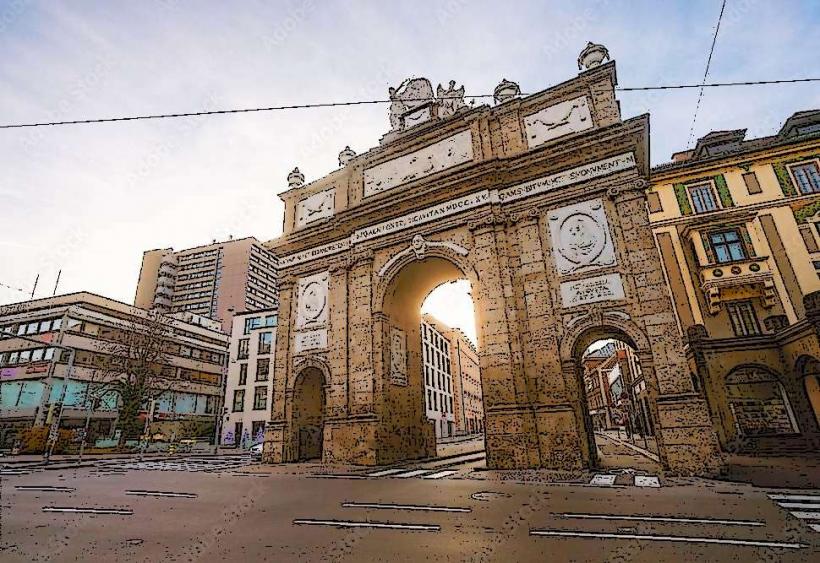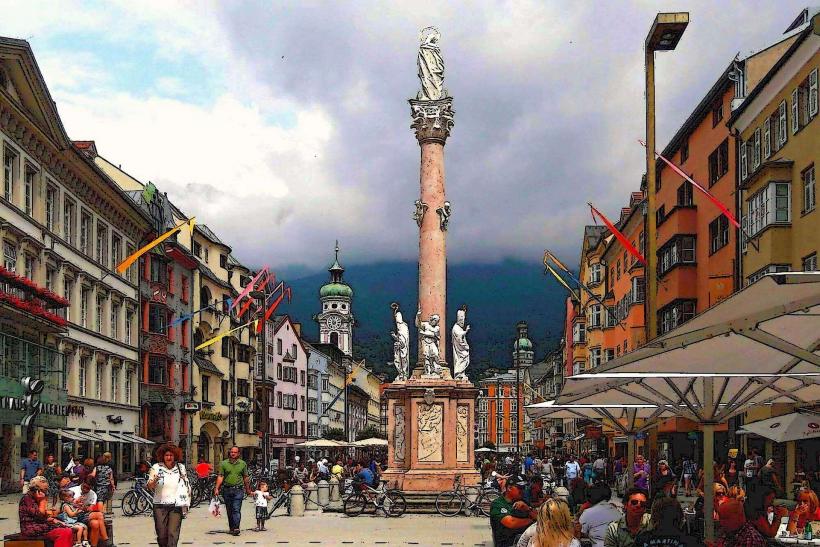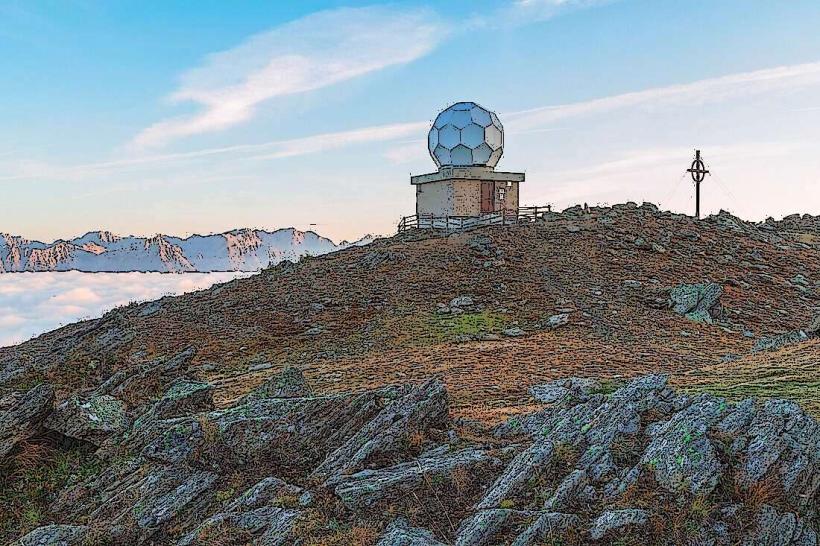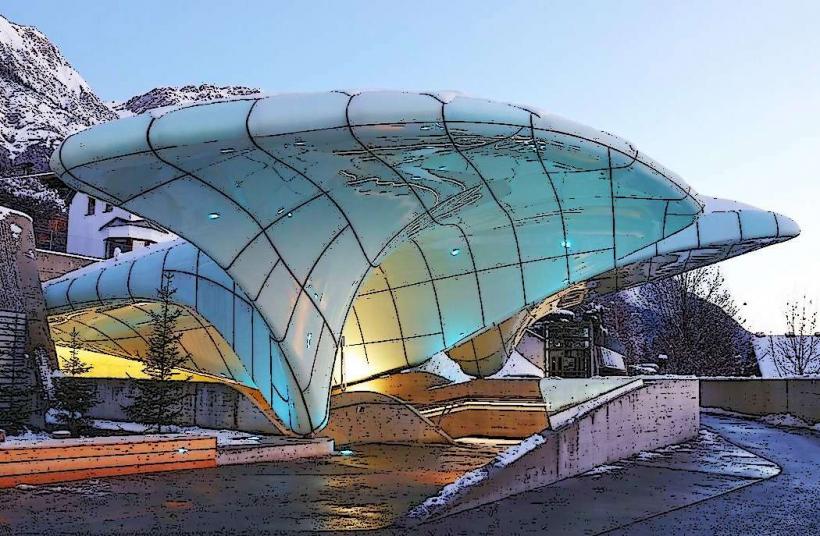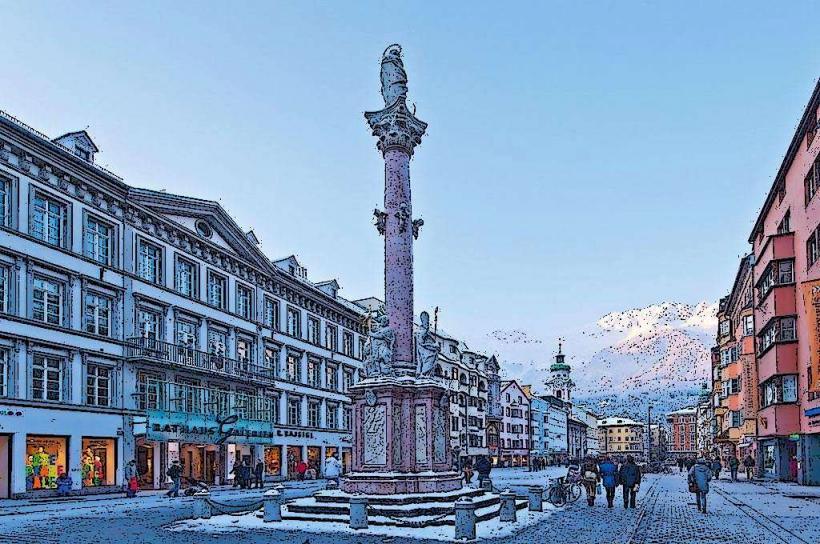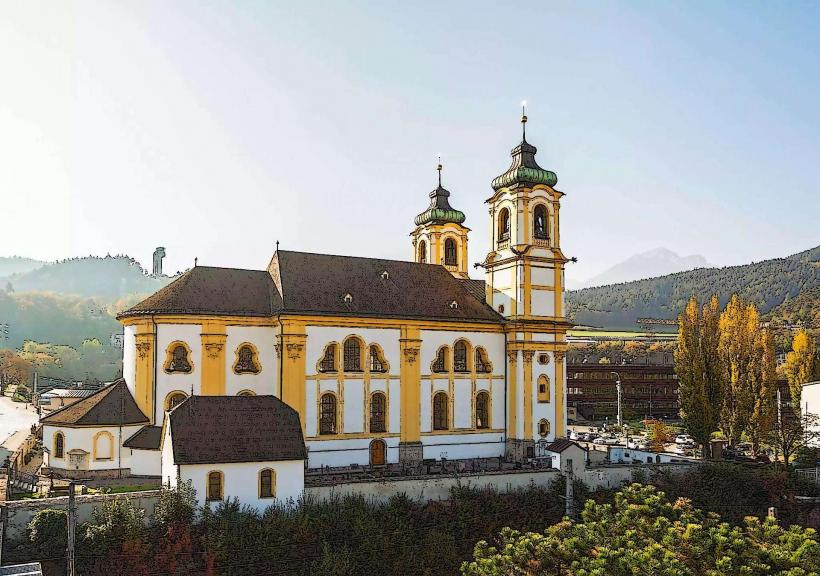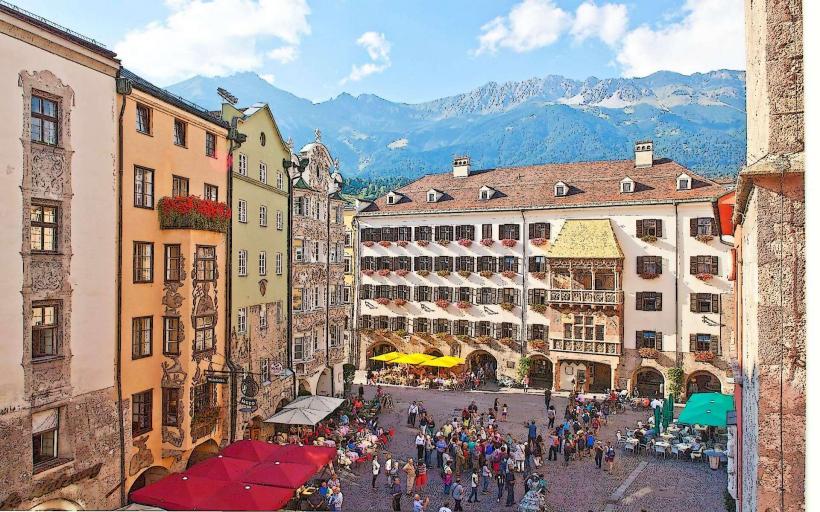Information
City: InnsbruckCountry: Austria
Continent: Europe
Innsbruck, the capital of Austria's Tyrol region, is a stunning city surrounded by the Alps, offering a unique blend of history, culture, and natural beauty. Known as the "Capital of the Alps," Innsbruck is renowned for its breathtaking alpine views, historic architecture, and as a hub for winter sports. The city's history as a center of trade, politics, and culture dates back to the Middle Ages, and it remains a vibrant destination for visitors year-round.
History and Background
Innsbruck’s history dates back to the Roman period, but it rose to prominence in the late medieval and early modern periods. The city’s strategic location in the Inn Valley made it an important stop for traders, and it became a key site for the Habsburg monarchy in the 15th and 16th centuries.
In the 15th century, Innsbruck became the residence of the Habsburg Archdukes, particularly under the reign of Emperor Maximilian I, who initiated many architectural projects and played a significant role in the city's development. Innsbruck was also the site of several key events in European history, including the marriage of Emperor Maximilian I to Mary of Burgundy, which established significant dynastic connections.
In the 20th century, Innsbruck became well-known for its winter sports, having hosted the Winter Olympics in 1964 and 1976, further cementing its reputation as a world-class destination for skiing and snowboarding.
Culture and Arts
Innsbruck has a rich cultural heritage, with its roots in the Middle Ages, Baroque period, and Renaissance. The city has a strong connection to the arts, particularly in music and visual arts. Innsbruck was historically known for its court music ensembles and as a center for the development of Alpine folk music.
The city hosts numerous festivals, including the Innsbruck Festival of Early Music, which celebrates classical and Renaissance music. The Tiroler Festwochen, held in the summer, showcases a range of performances, from opera to classical concerts. Innsbruck also hosts several events that celebrate its cultural diversity, including the International Festival of Dance and Theater.
Innsbruck’s cultural institutions, such as the Tyrolean State Museum (Tiroler Landesmuseum), offer insight into the region’s rich history and cultural traditions. The museum features exhibits on Tyrolean art, archaeology, and folklore, reflecting the region’s close ties to its Alpine heritage.
Architecture
Innsbruck’s architecture is a beautiful mixture of medieval, Baroque, and modern styles, with the city’s historical core offering many examples of its rich architectural heritage. The Old Town (Altstadt) is a maze of narrow streets lined with colorful buildings, historic squares, and churches. Innsbruck’s most famous landmark is the Golden Roof (Goldenes Dachl), a stunning 15th-century balcony with a gilded copper roof that was commissioned by Emperor Maximilian I to mark his marriage.
Another notable feature of Innsbruck's architecture is the Imperial Palace (Hofburg Innsbruck), which was once the residence of the Habsburg monarchs. The Court Church (Hofkirche) is also a significant historical and architectural site, housing the tomb of Emperor Maximilian I, surrounded by impressive bronze statues.
The Bergisel Ski Jump, designed by the renowned architect Zaha Hadid, is a modern architectural marvel and a symbol of Innsbruck’s continued connection to winter sports. This ski jump offers breathtaking views of the city and the surrounding mountains, as well as a platform for various international competitions.
Winter Sports and Outdoor Activities
Innsbruck is a world-renowned destination for winter sports, thanks to its location in the heart of the Alps. The city is surrounded by several ski resorts, including Axamer Lizum, Stubai Glacier, and Nordkette, which offer a variety of slopes and activities for skiers and snowboarders of all levels. Innsbruck hosted the Winter Olympics twice, and it continues to attract visitors for its winter sports events, including skiing, snowboarding, and ice skating.
Innsbruck is also a popular summer destination for outdoor enthusiasts, with numerous hiking trails, mountain biking paths, and opportunities for paragliding and climbing. The Nordkette Mountain is easily accessible from the city center by the Nordkette Cable Car, allowing visitors to enjoy stunning views of the city and surrounding Alps. The area is a favorite spot for hiking and offers a number of trails, from easy walks to challenging alpine climbs.
Cuisine
Innsbruck’s cuisine reflects the Alpine region, with hearty, flavorful dishes that make use of locally sourced ingredients. Traditional Tyrolean food includes Speck (cured ham), Kaiserschmarrn (a sweet, shredded pancake dish), Tirolean dumplings (Speckknödel), and Strudel (apple or fruit-filled pastries). The city is also known for its high-quality cheese, meats, and locally brewed beer.
Innsbruck has a number of excellent restaurants, ranging from casual alpine taverns to fine dining establishments. Many of the local dishes are inspired by the city’s history and its connection to both Austrian and Italian cuisine, with influences from the South Tyrol region in Italy.
Education and Research
Innsbruck is home to several important educational institutions, including the University of Innsbruck, which is one of the largest universities in Austria. The university offers a wide range of programs, particularly in the fields of science, humanities, and law. Innsbruck is also known for its research institutes in areas such as alpine studies, winter sports technology, and environmental sciences.
The city’s academic institutions are closely linked to its history of scientific research and exploration. Innsbruck has long been a center of research, particularly in fields related to the Alpine environment and mountain cultures. The university and other research facilities continue to draw scholars and students from around the world.
Festivals and Events
Innsbruck is a lively city with a wide range of festivals and events held throughout the year. The Innsbruck Festival of Early Music, held in the summer, is one of the most prominent classical music festivals in Europe. The Tirolean Folk Festival is another important event, celebrating the music, dance, and traditions of the region.
The New Year’s Eve concert at the Imperial Palace and the Christmas Markets held in various locations in Innsbruck, including the Old Town and the Hungerburg area, are highly popular. The winter season in Innsbruck also brings the Bergisel Ski Jumping competitions and various winter sports festivals.
Tourism and Visitor Experience
Innsbruck’s combination of historic charm, cultural richness, and world-class winter sports facilities makes it an attractive destination for tourists year-round. Visitors can enjoy exploring the charming Old Town, taking in the views from the Bergisel Ski Jump, hiking in the nearby mountains, or visiting the Tirol Panorama Museum to learn about the region's history.
The city’s public transportation system, including trams, buses, and cable cars, makes it easy for tourists to explore Innsbruck and its surrounding areas. The city also offers a range of accommodation options, from charming boutique hotels to luxurious resorts, catering to all types of travelers.
Innsbruck is a city that offers a unique combination of rich cultural history, natural beauty, and outdoor adventure. Whether you’re exploring its historic landmarks, enjoying a winter sports adventure, or immersing yourself in Tyrolean traditions, Innsbruck promises an unforgettable experience in the heart of the Austrian Alps.

